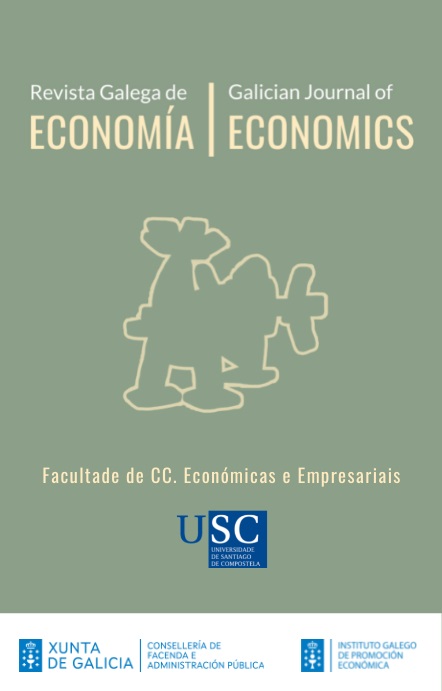The risk-based approach in organization quality management systems
Contenido principal del artículo
Resumen
The relevance of the study is associated with the problem of introducing a risk-based approach in the quality management systems (QMS) of organizations from various sectors according to the requirements of ISO 9001:2015. It hereby offers a new feature of risk classification based on their application in management systems concerning various aspects of organizations activity, in particular, risk in QMS (quality risk). The authors’ definition of the term “quality risk” is presented, and the concept of the “risk-based approach in QMS” is clarified. Methodical approaches to the choice of the complexity of the risk-based approach depending on the QMS maturity in an organization and the factors of its environment are developed and tested in 46 organizations from various industries.
Palabras clave:
Detalles del artículo
Referencias
Abernathy, C. (2016). Embracing the quality risk management process as a means to a strong quality culture. Retrieved from: https://www.outsourcedpharma.com/doc/embracing-the-quality-risk-managementprocess-as-a-means-to-a-strong-quality-culture-0001
Akimov, V.A. (2004). Risks in nature, technosphere, society, and economy. Moscow, Russia: Business Express.
Balabanov, I.T. (1997). Risk management. Moscow, Russia: Unity.
Balme, D. (2015). ISO 9001:2015: A key lever to take up the challenges of deregulated markets, change of consumption habits and make the best use of technological breakthroughs. Asigurarea Calităţii–Quality Assurance, 21(83), 23-25. Retrieved from: http://www.euroqual.pub.ro/wp-content/uploads/83-23.pdf
Barafort, B., Mesquida, A., & Mas, A. (2018). ISO 31000-based integrated risk management process assessment model for IT organizations. Journal of Software: Evolution and Process, 31(1). DOI: https://doi.org/10.1002/smr.1984
Batova, I. B. (2015). Classification of risks and their causes. International Student Scientific Bulletin. Retrieved from: https://www.eduherald.ru/pdf/2015/1/25.pdf
Cagnin, F., Oliveira, M. C., & Cauchick Miguel, P. A. (2019). Assessment of ISO 9001: 2015 implementation: Focus on risk management approach requirements compliance in an automotive company. Total Quality Management & Business Excellence. DOI: https://doi.org/10.1080/14783363.2019.1677151
Chaika, I. (2014). Standard ISO 9001:2015. What's waiting for us? Standards and Quality, 6(924), 60-63.
Crocker, K. J., & Snow A. (2018). Theory of risk classification. In G. Dionne (Ed.), Handbook of Insurance (pp. 245-276). Retrieved from: https://link.springer.com/chapter/10.1007/978-94-010-0642-2_8
Crouhy, M. (2018). Fundamentals of risk management. Moscow, Russia: Yurait Publishing House.
Durivage, M. (2017). Integrating risk management in the quality management system – A primer. Retrieved from: https://www.pharmaceuticalonline.com/doc/integrating-risk-management-in-the-quality-managementsystem-a-primer-0001
Dzedik, V.A. (2015). Creation and audit of quality management systems in accordance with the international standard ISO 9001:2015. Volgograd, Russia: PrinTerra-Design.
Fonseca, L.M., & Domingues, J. P. (2018). Empirical research of the ISO 9001:2015 transition process in Portugal: Motivations, benefits, and success factors. Quality Innovation Prosperity, 22(2), 16-64. DOI: http://dx.doi.org/10.12776/qip.v22i2.1099
Golubinsky, Y. M. (2016). Application of risk-based thinking in the new version of ISO 9001:2015. Monitoring. Control. Control, 2(16), 21-27.
Hoodat, H., & Rashidi, H. (2009). Classification and analysis of risks in software engineering. World Academy of Science, Engineering and Technology, 56, 446-452. Retrieved from: https://www.academia.edu/573832/Classification_and_Analysis_of_Risks_in_Software_Engineering
Hopkin, P. (2017). Fundamentals of risk management: Understanding, evaluating and implementig effective risk management. 4th ed. London, England: Kogan Page.
Hutchins, G. (2014). Risk management – The future of quality management (translated by Rakhmanov V.) Retrieved from: https://1cert.ru/stati/upravlenie-riskami-budushchee-menedzhmenta-kachestva
International Organization of Standardization (ISO). (2018). ISO 31000:2018 Risk management. Principes and guidelines. Geneve, Switzerland: ISO. Retrieved from: https://www.risk-academy.ru/
Itkin, B. (2016). Risk and risk-based thinking: Whether we can control the first with the second? Standards and Quality, 10(952), 68-73.
Levshin, L. M. (2015). Application of the risk-based approach at the industrial enterprises. Science Perspectives, 3(66), 162-167.
Mire-Sluis, A., Ramnarine E., Siemiatkoski, J., Weese, D., Swann, P., O’Keeffe, R., Kutza, J., Edwards, J., & McLeod, L. D. (2010). Practical applications of quality risk management. Retrieved from: https://mafiadoc.com/practicalapplications-of-quality-risk-management-casss_5a4644711723dd0698313138.html
Molach, H. A., Long, M., & Bisman, G. S. (2015). Risk management. Foreign experience. Quality Management Methods, 5, 26-32.
Orlova, O. A. (2018). Improvement of quality management systems of organizations on the basis of development of risk-based models. (Doctoral thesis). St. Petersburg, Russia: St. Petersburg State University of Economics. Retrieved from: http://unecon.ru/sites/default/files/d04orlovaoy.pdf
Panasyuk, V. N. (2015). Integrated risk management in JSC NIIME and “Mikron” company. Quality Management Methods, 4, 10-15.
Ralexandrov, S., Timofeeva, N., Zorin, Y., & Novikov, V. (2017). Risk-based thinking and process approach to activity management. Advances in Chemistry and Chemical Technology, 10(964), 71-75.
Redko, L., & Yanushevskaya, M. (2018). Risk analysis in the quality management system. Standards and Quality, 6(972), 98-102.
Renn, O. (2010). Concepts of risk: A classification. Retrieved from: https://mafiadoc.com/queue/concepts-of-risk- a-classification_5af80b8a7f8b9a53378b4667.html
Rybski, C., Jochem, R., & Homma, L. (2017), Empirical study on status of preparation for ISO 9001:2015. Total Quality Management & Business Excellence, 28(9-10), 1-14. DOI: https://doi.org/10.1080/14783363.2017.1303886
Smith, C., Kourouklis, A., & Cano, M. (2018). ISO 9001: 2015 introduction of explicit risk-based thinking – Benefit or limitation? Asigurarea Calitatii Quality Assurance, 24(94), 29-40. Retrieved from: http://www.asigurareacalitatii.ro/wp-content/uploads/94-29.pdf
Spiridonova, A. A., & Khomutova, E. G. (2017). The risk-oriented approach in the quality management system of an industrial enterprise: The problem of selectiiing the methods of risk management, ОРГАНИЗАТОР ПРОИЗВОДСТВА, 25(2), 92-100. DOI: https://dx.doi.org/10.25065/1810-4894-2017-25-2-92-100
Standartinform. (2015). GOST R ISO 9001-2015. Quality Management Systems. Requirements. Moscow, Russia: Standartinform.
Standartinform. (2016). GOST R 57189-2016/ISO/TS 9002:2016. Quality management systems for the use of ISO9001:2015. Moscow, Russia: Standartinform.
Ukolov, A. I. (2017). Risk assessment. 2nd stereotype edition. Moscow, Russia: Direct Media. Retrieved from: http://biblioclub.ru/index.php?page=book&id=445268
Vaz Pereira, G., Severo, F., & Fontoura, L. (2016). A risk management approach based on situational method engineering. Retrieved from: https://mafiadoc.com/a-risk-management-approach-based-on-semanticscholar_59e5a3e01723dd4fd1925367.html
Zhemchugova, O. V., & Levshina, V. V. (2018). Approbation of the methodological approaches to the choice of the risk-based thinking application method in the quality management system of an organization. Economics and Entrepreneurship, 11, 871-875.
Zhemchugova, O. V., Levshina, V. V., & Levshin, L. M. (2017). Choice of the risk-based thinking application method in the organization. Economics and Entrepreneurship, 11, 1063-1066.







